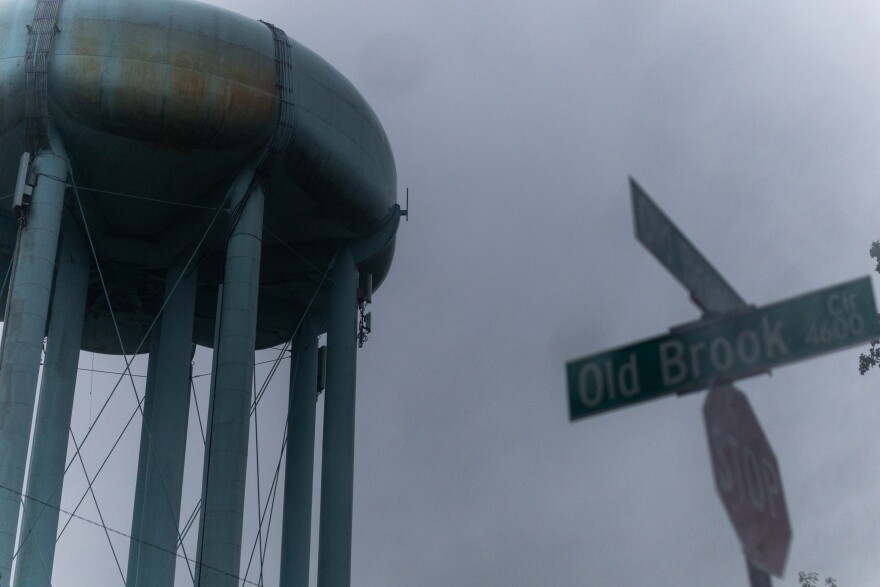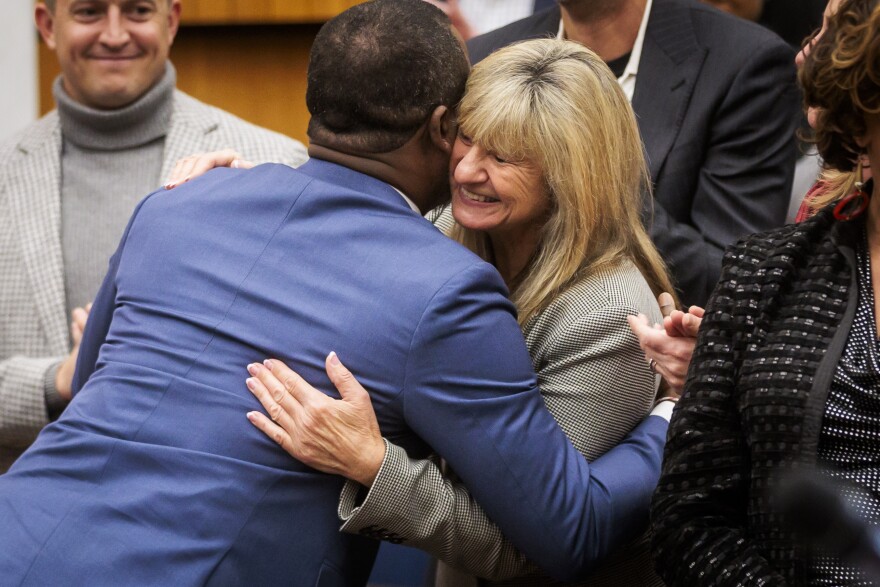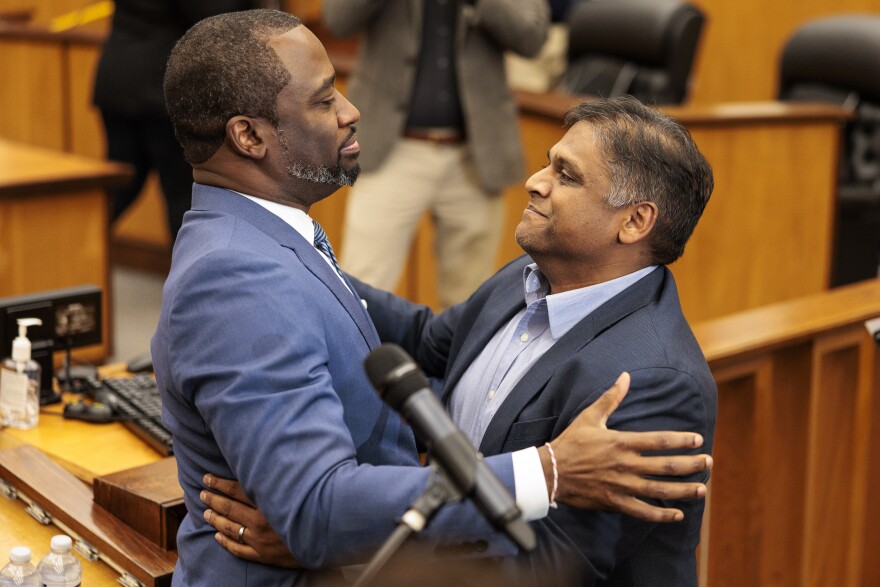A second service disruption to Richmond’s water utility this year has resurfaced questions about the recent cancellation of a $12 million FEMA grant intended to reinforce the city’s water treatment plant.
While a spokesperson for the city’s Department of Public Utilities said the scope of the work described in a 2023 grant announcement had nothing to do with the problems this week, it’s unlikely to cool flaring tempers after repeated boil water advisories and potential rate increases for repairs.
FEMA initially announced the grant in August 2023. According to an archived press release, the funding would have paid for work to “protect” water treatment and distribution. Less than two years later — and before the city appropriated the money — President Donald Trump’s administration canceled the Building Resilient Infrastructure and Communities grant program in March, deeming it “wasteful and ineffective” spending in pursuit of “political agendas.”
FEMA pegged its funding in Richmond to improve hard infrastructure at the treatment plant, including concrete walls, berms, gates and channels. Richmond utility officials have said the targeted repairs would not have addressed issues that led to a nearly weeklong outage in January, nor this week’s disruption.
“The feeder channel and berms have no connection to the clogged filters that caused the temporary reduction in water production this week,” DPU spokesperson Rhonda Johnson said in an email Wednesday.

Richmond initially announced a boil water notice for several neighborhoods before noon Tuesday. Just hours earlier, officials disclosed that they were addressing operational issues attributed to “high turbidity” (cloudy or murky water with dirt particles) clogging the plant’s filtration system.
At the time, they said no further precautions were necessary.
By the end of the day, the service disruption that was originally contained to neighborhoods around the Ginter Park water tank, the Fan and downtown expanded to Manchester and the Richmond Highway/US Route 1 corridor.
Mayor Danny Avula announced in a statement shortly after 2:30 p.m. Thursday that the boil advisory had been lifted after the city’s water passed two rounds of testing.
Reva Trammell, who represents the 8th District on the Richmond City Council, told VPM News on Wednesday that many of her constituents in the impacted Southside area were angry.
“I’ve got people calling me, screaming that they don’t have water to drink,” she said.
Trammell said she was unsure of what happened to the FEMA grant, but questioned whether former Richmond Mayor Levar Stoney’s administration (2017–24) could have prioritized repairs with money from a $155 million federal COVID-19 emergency aid package — or experimental programs like the Richmond Resilience Initiative, which aims to give single parents and other eligible participants $500 per month with “no strings attached.”
“When you got a water crisis that affects the whole damn city, it affects every taxpayer,” she said. “Everybody from restaurants, nail salons, hairdressers, schools, hospitals and seniors at senior apartments.”

Both Trammell, who has been on council continuously since 2007 after previously serving two terms from 1998–2002, and Stoney — who is running for the Democratic nomination in this year’s election for lieutenant governor — told VPM News it’s possible they would have done things differently if they had known about more severe problems at the Douglasdale Road plant.
“I really can’t recall any sort of document coming across my desk as mayor speaking directly to this grant,” Stoney said in a phone interview Wednesday.
Regardless of the FEMA grant, a 2022 Environmental Protection Agency audit of the water system — conducted during Stoney's second term as mayor — found no asset management plan for rusting valves, chemical leaks and malfunctioning meters in Richmond’s drinking water infrastructure.
Since the first water crisis shortly following his inauguration in January, Avula — a career public health official and medical doctor — has replaced several public utilities leaders. Director April Bingham, who was appointed by Stoney in 2020, resigned a week after the first crisis.
(Bingham later “rescinded her resignation” before being dismissed by Avula, a city spokesperson said.)
Earlier this month, The Richmonder reported that the city has placed the Douglasdale Road plant’s superintendent on paid administrative leave.
When asked whether he’s since questioned the trust placed in his appointed directors and managers following these incidents, Stoney said Wednesday that some of the issues may have bubbled from the bottom up.
“I think information that was critical for higher levels of the City Hall organization to know about was not leaving the plant,” Stoney told VPM News. “We want to be able to know, to solve the problems that are necessary. And unfortunately, this is not just typical of the public sector. You see this in the private sector as well.”
Stoney also said he prioritized investments across the entire utility system during his eight-year term. He said upward of $400 million was spent on the treatment plant, including millions more for replacing lead pipes and repairs to the city’s notorious combined sewer overflow system.
“What should bother every Richmonder right now is Donald Trump ripping away grants for critical infrastructure like our water system,” he said.

“I put forward eight budgets. Seven of those budgets had adjustments to the water utility rate. By the time I left office, I saw a 21% increase in the rate,” Stoney added. “Those dollars went into investments in maintenance and capital upgrades. But we can’t burden our ratepayers to fixing a 100-year-old system alone. We need federal and state partners to make investments.”
Despite the loss of the FEMA grant, Richmond City is still planning to move forward with those capital projects later this year, according to DPU officials. The city’s recently adopted budget and capital improvement plan for the fiscal year starting July 1 includes $38 million for the treatment plant. It also projects that customers will pay $8 more each month for water, sewer and stormwater.
Johnson said the FEMA grant could have helped offset potential rate increases that are becoming an annual rite in the budget process.


